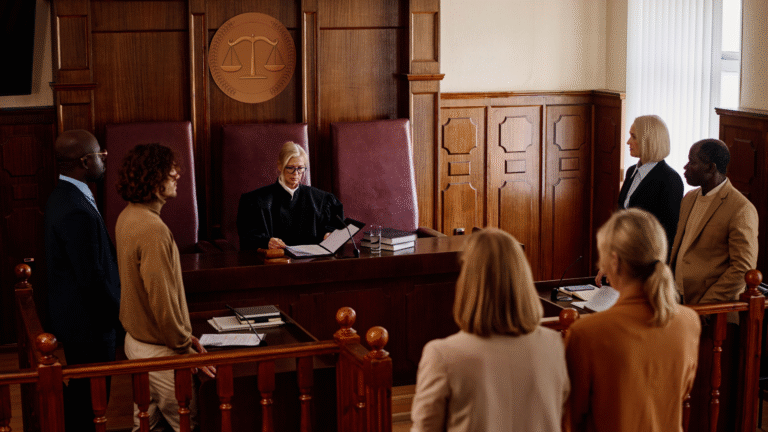When legal disputes arise in your personal or professional life, understanding the role of civil lawyers becomes essential. Whether you’re dealing with contract breaches, property disagreements, or personal injury cases, these legal professionals serve as your advocates in the complex world of civil litigation. This comprehensive guide will walk you through seven crucial aspects of civil lawyers that every person should understand before seeking legal representation.

1. Understanding What Civil Lawyers Do
Civil lawyers specialize in non-criminal legal matters, representing clients in disputes between individuals, businesses, or organizations. Unlike criminal attorneys who handle cases involving government prosecution, civil attorneys focus on resolving conflicts where one party seeks compensation or specific performance from another.
A civil lawyer for contract disputes handles situations where agreements between parties have been breached or misinterpreted. These professionals analyze contract terms, assess damages, and develop strategies to protect their clients’ interests. They work on everything from simple service agreements to complex business partnerships.
The scope of civil law extends far beyond contracts. These attorneys also handle cases involving personal injury, property disputes, employment issues, family matters, and defamation claims. Each area requires specialized knowledge and experience, which is why many civil lawyers choose to focus on specific practice areas.
Civil litigation involves several phases, including investigation, pleadings, discovery, trial preparation, and, potentially, the trial itself. Throughout this process, your attorney serves as both advisor and advocate, helping you understand your rights and options while working toward the best possible outcome.
2. Different Types of Civil Law Specializations
The field of civil law encompasses numerous specializations, each requiring unique expertise and experience. Understanding these different areas can help you identify the right type of attorney for your specific situation.
Contract law specialists focus on agreement-related disputes, handling everything from simple breach of contract cases to complex commercial litigation. These attorneys understand the nuances of contract interpretation and can help you navigate disputes involving non-performance, misrepresentation, or contract termination.
Personal injury attorneys represent clients who have been harmed due to someone else’s negligence or intentional actions. A civil defense lawyer for personal injury works on the opposite side, defending individuals or companies against injury claims. Both roles require a deep understanding of tort law, medical evidence, and insurance regulations.
Property law specialists, or local civil lawyers for property disputes, handle conflicts involving real estate, boundary issues, landlord-tenant relationships, and property damage claims. These cases often involve significant financial stakes and require attorneys who understand both property law and local regulations.
Employment law attorneys deal with workplace-related disputes, including wrongful termination, discrimination, harassment, and wage disputes. Family law specialists handle divorce, child custody, adoption, and domestic relations matters.
3. The True Cost of Civil Legal Representation
Understanding the financial aspects of hiring civil lawyers is crucial for making informed decisions about legal representation. The civil lawsuit attorney consultation cost varies significantly based on location, complexity of the case, and the attorney’s experience level.
Most civil attorneys use one of several fee structures. Hourly billing is common, with rates typically ranging from $150 to $500 per hour depending on the attorney’s experience and geographic location. Some lawyers offer flat fees for specific services like contract review or simple legal documents.
Contingency fees are popular in personal injury and some other civil cases. Under this arrangement, the attorney only gets paid if you win your case, typically taking 25% to 40% of the settlement or judgment. This structure makes legal representation accessible to people who might not otherwise afford it.
However, legal costs extend beyond attorney fees. Court filing fees, expert witness fees, deposition costs, and document production expenses can add thousands to your total legal bill. A transparent attorney will discuss all potential costs upfront and provide regular updates about expenses.
Some attorneys offer payment plans or reduced rates for clients with limited financial resources. Additionally, legal insurance and some employment benefits packages may cover certain legal expenses.
4. How to Find and Choose the Right Civil Attorney
Finding the best civil litigation lawyer near me requires careful research and consideration of several factors. Start by identifying attorneys who specialize in your specific type of case, as expertise in the relevant area of law significantly impacts case outcomes.
Begin your search by consulting your state bar association’s referral service, which can provide names of qualified attorneys in your area. Online directories, professional networks, and recommendations from other attorneys can also be valuable resources.
When evaluating potential lawyers, consider their experience with cases similar to yours, their track record of success, and their communication style. Schedule consultations with multiple attorneys to compare their approaches and fee structures.
During initial consultations, pay attention to how well the attorney listens to your concerns and explains legal concepts. They should be able to provide a realistic assessment of your case’s strengths and weaknesses, potential outcomes, and estimated timeline.
Check the attorney’s standing with the state bar and look for any disciplinary actions. Online reviews can provide insights, but remember that exceptional cases often generate the most reviews, both positive and negative.
Consider the attorney’s availability and caseload. An overloaded lawyer may not be able to give your case the attention it deserves, while someone with too few clients might lack experience.
5. What to Expect During Your First Consultation
The initial consultation with civil lawyers serves multiple purposes for both you and the attorney. Most lawyers offer free or low-cost initial consultations, though some experienced attorneys may charge for this time, particularly for complex matters.
Come prepared with all relevant documents, including contracts, correspondence, photographs, medical records, or any other materials related to your case. Organize these documents chronologically and prepare a brief timeline of events.
Be completely honest about all facts, even those that might seem unfavorable to your case. Your attorney needs complete information to provide accurate advice and develop effective strategies. Attorney-client privilege protects your communications, so speak freely about your concerns and goals.
6. Common Challenges and Limitations in Civil Cases
Civil litigation presents several challenges that clients should understand before proceeding with legal action. One significant challenge is the time involved in resolving civil disputes. Even relatively simple cases can take months to resolve, while complex litigation may continue for years.
The discovery process, where both sides exchange information and evidence, can be lengthy and expensive. Depositions, document requests, and expert witness preparations all require significant time and financial investment. This phase often determines the strength of your case and influences settlement negotiations.
Proving damages in civil cases can be complex, particularly when dealing with intangible losses like emotional distress or future earning capacity. Courts require clear evidence linking the defendant’s actions to your claimed damages, which sometimes requires expensive expert testimony.
A collection of judgments presents another challenge. Winning a lawsuit doesn’t guarantee you’ll receive compensation. If the defendant lacks assets or declares bankruptcy, collecting your award may be difficult or impossible.
Settlement pressure can also create challenges. While settling avoids trial risks and reduces costs, it may result in lower compensation than you might receive at trial. Your attorney should help you weigh these considerations carefully.
The emotional toll of litigation shouldn’t be underestimated. Civil cases can be stressful, particularly when they involve ongoing relationships or significant financial stakes. Having realistic expectations helps manage this stress.
7. Specialized Services: From Property Disputes to Defamation Cases
Civil lawyers offer specialized services across numerous practice areas, each requiring unique expertise and approach strategies. Understanding these specializations helps you identify the right attorney for your specific needs.
Property dispute attorneys handle complex issues involving real estate transactions, boundary disputes, easement rights, and landlord-tenant conflicts. An experienced civil attorney for land dispute cases understands local property laws, zoning regulations, and title issues that can significantly impact case outcomes.
For those dealing with rental issues, finding the right professional to hire a civil lawyer for tenant issues becomes crucial. These cases often involve lease interpretation, security deposit disputes, habitability concerns, and eviction proceedings. Tenant rights vary significantly by location, making local expertise essential.
Defamation cases require civil lawyers who understand the delicate balance between free speech rights and reputation protection. A skilled civil case lawyer for defamation must prove that false statements caused measurable harm to your reputation, career, or business relationships. Most civil lawyers handling defamation matters also guide clients through media management and social damage control.
Contract dispute resolution varies significantly depending on the type of agreement and the parties involved. Civil lawyers experienced in business contracts approach resolution differently than those handling consumer agreements. For international disputes, civil lawyers must be familiar with cross-border laws and jurisdictional issues to protect their clients’ interests.
Personal injury defense work involves protecting individuals and businesses against injury claims. Here, civil lawyers play a key role in reviewing insurance coverage, evaluating medical evidence, and assessing liability. A strong network of experts often supports civil lawyers in these complex cases, especially when injuries involve long-term impact or disputed causation.
Employment-related civil cases include discrimination, wrongful termination, wage disputes, and harassment claims. Civil lawyers working in this area must interpret both federal and state labor laws. Because these laws constantly evolve, updated knowledge is crucial. Many civil lawyers also assist with creating workplace policies that minimize future litigation risks.
In most cities, you can find affordable civil lawyer services by seeking attorneys who focus on specific practice areas. These civil lawyers use efficient legal processes to handle common cases, helping clients access justice without overwhelming legal bills. Clients benefit from this specialization because it ensures their attorney has deep, targeted expertise.
To make legal help more accessible, some law firms provide civil litigation attorneys with free consultation services. This allows potential clients to explore their case with qualified civil lawyers before committing financially. It’s especially helpful for those unsure about their legal standing or next steps.
Whether you’re facing a real estate dispute, breach of contract, or reputational harm, choosing the right civil lawyers can make or break your case. Many civil lawyers also offer remote consultations, making expert legal advice more accessible than ever.
What’s the difference between a civil lawyer and a criminal lawyer?
Civil lawyers handle disputes between private parties where one seeks compensation or specific performance from another, such as contract breaches or personal injury cases. Criminal lawyers defend against government prosecution for violations of criminal law. Civil cases typically result in monetary damages or court orders, while criminal cases can result in fines, probation, or imprisonment.
How much does it typically cost to hire a civil lawyer?
Civil lawyer costs vary widely based on location, case complexity, and attorney experience. Hourly rates typically range from $150 to $500 per hour. Some attorneys work on contingency fees (25-40% of any recovery) for certain cases, like personal injury. Initial consultations may be free or cost $100-300. Additional expenses like court fees, expert witnesses, and document production can add thousands to total costs.
How long do civil cases typically take to resolve?
Civil case timelines vary significantly based on complexity, court schedules, and whether parties settle. Simple contract disputes might resolve in 6-12 months, while complex litigation can take 2-4 years or longer. The discovery phase often takes several months, and court backlogs can add additional delays. Many cases settle before trial, which can significantly reduce the timeline.
Do I need a lawyer for every civil legal issue?
Not every civil matter requires an attorney, but legal representation becomes important for complex issues, significant financial stakes, or when the opposing party has legal counsel. Small claims court handles minor disputes without requiring attorneys. However, cases involving contracts, personal injury, property disputes, or potential large financial losses typically benefit from professional legal representation.
What should I bring to my first consultation with a civil lawyer?
Bring all relevant documents, including contracts, correspondence, photographs, medical records, police reports, or any materials related to your case. Prepare a chronological timeline of events and write down your questions beforehand. Also, bring information about any deadlines you’re aware of, as some legal actions have strict time limits called statutes of limitations that could affect your case.







